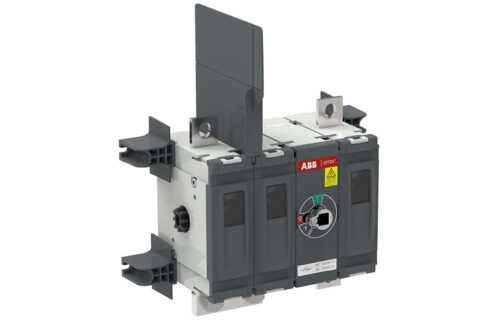ABB has earned the UL98B certification for its 2,000-V OTDC switch-disconnector, the first to do so in the renewable energy industry.

ABB’s 2,000-V OTDC switch-disconnector.
Over the last 20 years, solar systems have evolved to handle progressively higher voltages, resulting in lower system costs and higher energy yield. UL certifications are crucial for ensuring product safety, reliability and performance in the U.S. renewable energy industry. UL Solutions, a global leader in applied safety science, conducts rigorous testing and evaluations to ensure products meet electrical, fire, mechanical and environmental performance standards.
While 2,000-V solar modules are becoming commercially available, 2,000-V solar systems will require inverters and combiner boxes with switches that can also handle the higher voltage.
“This certification is a breakthrough for the solar industry,” said Bill Stewart, product marketing director, ABB Smart Power. “We’re proud to be the first to market with a UL-certified 2,000-V solution that directly addresses our customers’ demands for higher efficiency and lower costs without compromising quality. Innovations like this are critical to accelerating the energy transition.”
ABB’s three-pole DC switch-disconnector is designed for 2,000-V utility-scale photovoltaic power plants, enabling increased power output while reducing electrical balance of system costs by up to 15% through faster installation times, fewer components and lower labor costs, the company stated in a press release. The 2,000-V design can also handle more modules per string to improve energy yield across the lifespan of solar installations, which ultimately drives costs down for developers and EPCs.
“Our customers have been clear: UL certification is the first step many require to ensure product and project compatibility,” said Brian Nelson, renewables segment leader at ABB. “Achieving this milestone removes a major barrier and reaffirms ABB as the enabler for the next generation of more efficient, cost-effective solar installations.”
Products rated for 2,000 V are expected to increase from less than 5 GW in 2026 to 380 GW by 2030. At that time, they are predicted to comprise 77% of all utility-scale solar projects worldwide by 2030.
News item from ABB


















